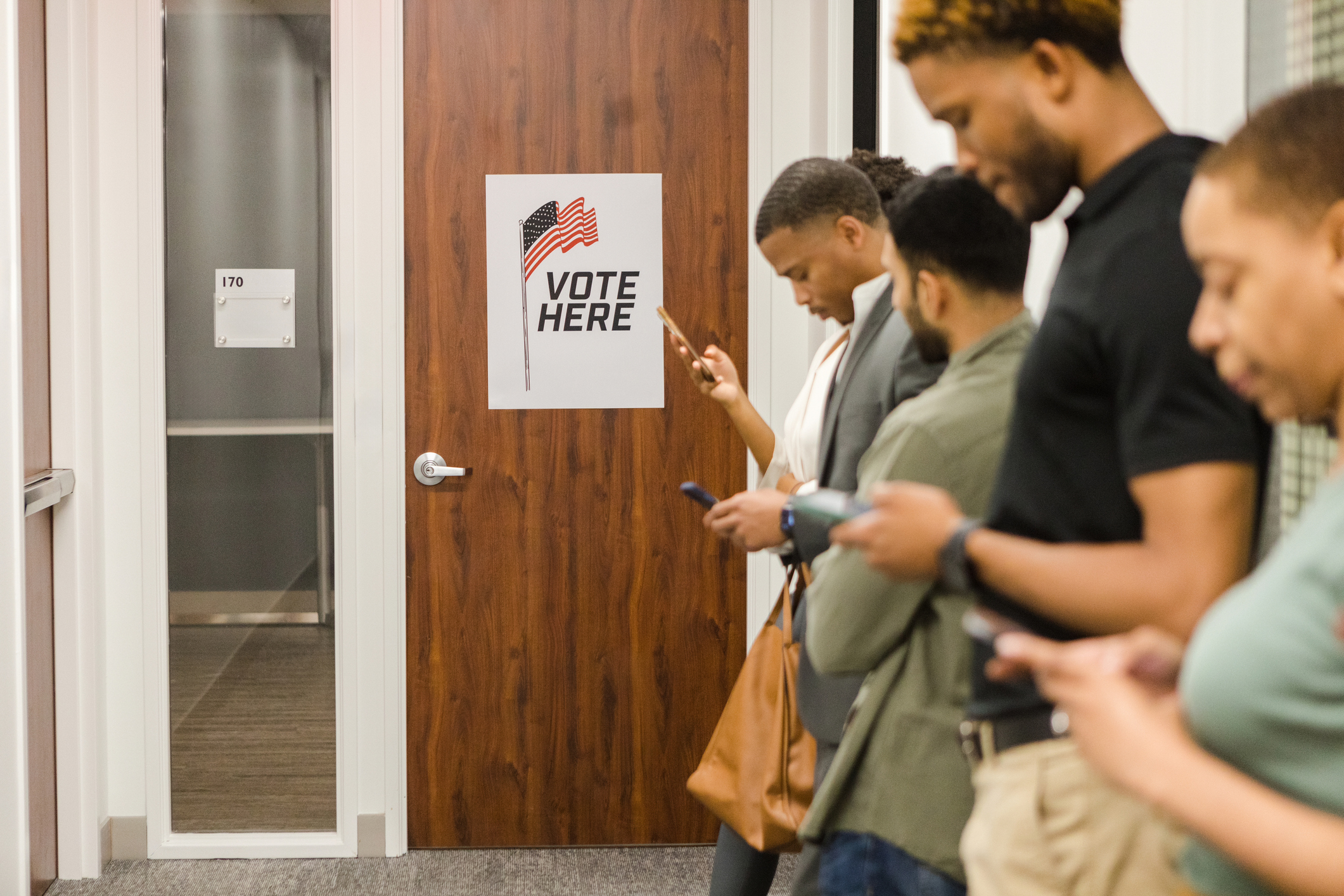Are you drowning in political campaign texts? You aren’t alone.
As the November 2024 election approaches, Americans across the country are experiencing a surge in text messages from political campaigns vying for their attention, donations, and votes. According to Alex Quilici, CEO of call-blocking company YouMail, there have already been more political texts in 2024 than in all of 2023.
[time-brightcove not-tgx=”true”]
For some, the incessant buzz of political campaign texts has become a daily annoyance, clogging phones with unwanted notifications and creating the challenge of distinguishing legitimate outreach from potential scams. Yet there’s a reason you keep getting them: Political campaigns have increasingly turned to text messaging as a preferred mode of communication, surpassing traditional methods like mailers or phone calls because of the relatively low cost and high engagement rates. “If you see more of something, it means it’s working,” says Quilici.
Even some of the researchers who paved the way for campaign texts are frustrated by the volume. “Text messages are an important tool but of course, like many people, I am annoyed by how many of them I get and how often I have to send a STOP message,” says Melissa Michelson, a dean at Menlo College who conducted an experiment decades ago to see if text messages could be used to increase voter participation in San Mateo County, Calif. Her research, in part, contributed to the widespread adoption of text messaging in political campaigns today. “I’m sorry about that,” she says.
Why you get so many campaign texts
In the digital age, political campaigns have embraced text messaging as a pivotal component of their outreach strategies. Unlike emails that often languish unread or phone calls that go unanswered, text messages offer a sense of immediacy and are seen promptly by recipients.
Quilici, whose company tracks and analyzes the volume of political texts, says this direct line to voters’ personal devices allows campaigns to deliver targeted messages, solicit donations, mobilize volunteers, and provide crucial updates on campaign events—all with a few taps on a smartphone screen. “Political campaigns know that there’s almost no cost to send texts out and enough people respond to make it valuable,” he says, adding that younger generations are more likely to engage with texts than phone calls from unknown numbers.
According to research conducted by YouMail, Republicans are outpacing Democrats in political text messaging in 2024 by a ratio of at least 2 to 1 (except for one week at the beginning of March).
The process of acquiring phone numbers for text messaging is simple. Campaigns can obtain these numbers by leveraging extensive databases and digital tools designed to gather and utilize voter contact information. In the U.S., political parties and campaigns have access to voter registration records, which commonly include voters’ phone numbers along with other demographic details. These records are typically maintained by state and local governments and are considered public information, enabling campaigns to access them for their outreach efforts.
Some campaigns also utilize data brokers who specialize in collecting and selling consumer data, including voter information. These brokers compile vast databases that aggregate publicly available data, such as voter registration lists, consumer purchases, social media activity, and other sources, allowing campaigns to create detailed voter profiles that can be used to target specific demographics.
But before political campaigns can send mass text messages, they are required to register with a relevant text-messaging registry to verify the legitimacy of the campaign and ensure compliance with industry standards for opt-in and opt-out procedures mandated by CTIA, a wireless-communication trade association, and U.S. carriers. Once a campaign receives approval from the registry, they can use a mass-texting service provider to deliver messages on behalf of the campaign from a dedicated phone number.
As text messaging has become a mainstream communication tool for campaigns, Michelson says its effectiveness has evolved and campaigns now need to carefully consider how to target their efforts effectively. “The reason text messaging was so effective 15 years ago is because it was unusual,” Michelson says. “When it is no longer unusual, it becomes easier to ignore, and then it becomes less effective. And so then campaigns have to think about, for whom is text messaging going to be effective? And how should I be focusing my efforts?”
How to get them to stop
Those who want to stop campaigns from sending text messages can typically opt out by replying “STOP” or by blocking the sender’s phone number.
Political campaigns are required to obtain your consent before sending automated messages, and they must respect your opt-out requests when you reply with “STOP,” as outlined by the Federal Communications Commission (FCC). Once you opt out, you should not receive any further messages from that campaign, not just from the specific number you replied to. Failure to comply with these regulations could result in the campaign’s messages being blocked by phone carriers in the future.
Sometimes bad actors exploit political texts to deceive recipients into clicking malicious links or divulging personal information, usually by impersonating legitimate campaigns or candidates and urging recipients to take immediate action without verifying the sender’s authenticity. If you don’t think a campaign text is legitimate, the FCC advises recipients to report suspicious text messages as spam by forwarding the message to 7726, which can prompt the wireless carrier to investigate the sender and block future messages. Most smartphones have a built-in spam blocker that allows users to silence messages from unknown senders. There are also many filtering apps that users can install to flag real texts from potential spam.
Quilici says that Americans should always treat political texts as alerts and never click through or interact with them unless they can verify that it’s legitimate. “If you get a text saying that President Biden needs your help, take the extra effort and find out how to donate online,” he says. “Don’t just click a link that was sent to you.”

